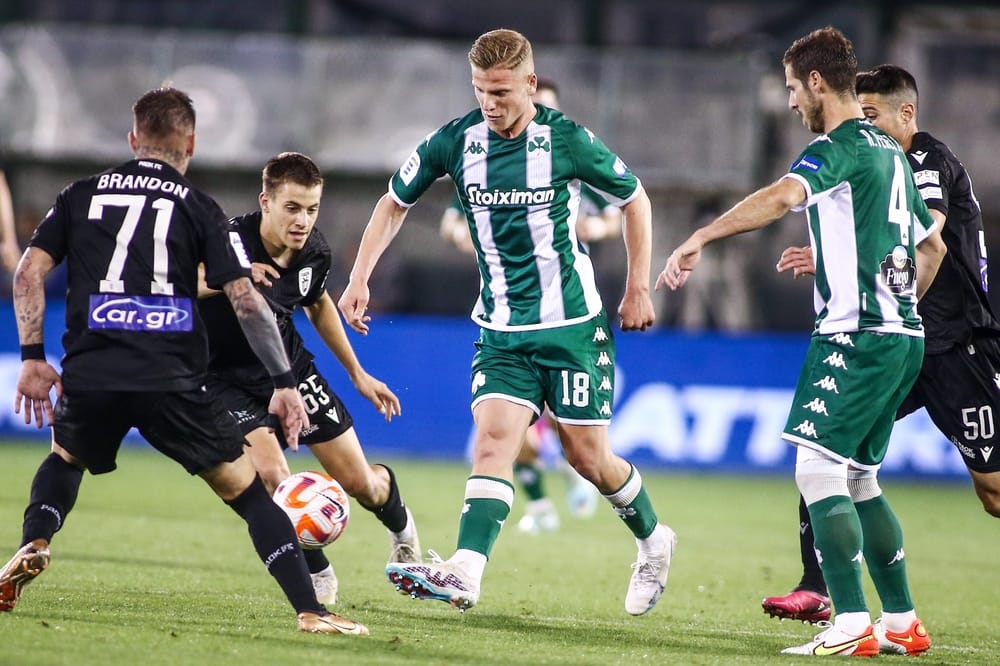Beyond the Parthenon: Exploring Soccer Capital Athens
In this new series about soccer capitals of the world, we take a closer look at Athens, Greece.

Athens, the capital of Greece, is a city steeped in soccer tradition and passion. The intense rivalries between its three dominant clubs - AEK Athens, Panathinaikos, and Olympiacos - have captivated fans for decades, creating an unparalleled atmosphere of excitement and drama in the city's stadiums. These "Big Three" teams have not only dominated the Greek Superleague, but have also etched their names in the annals of European football, with impressive performances in continental competitions.
The Birthplace of Greek Soccer
Soccer's origins in Athens can be traced back to the late 19th century, when the sport was first introduced to the city's privileged classes. Panathinaikos, founded in 1908, was one of the earliest clubs to emerge, establishing itself as a symbol of the city's elite. Soon after, the working-class population of neighboring Piraeus sought to create their own team, leading to the establishment of Olympiacos in 1925.
The Rivalry Takes Shape
The rivalry between Panathinaikos and Olympiacos quickly intensified, reflecting the historical tensions between the affluent Athenians and the more working-class Piraeus residents. As the two clubs battled for supremacy on the pitch, a third contender, AEK Athens, joined the fray in 1924, further intensifying the competition.
Dominance and Decline
Over the decades, the "Big Three" have taken turns at the top of the Greek soccer hierarchy. Olympiacos has been the most successful, winning a record 47 league titles, while Panathinaikos and AEK Athens have 20 and 13 titles, respectively. However, the clubs have also experienced periods of decline, with financial mismanagement, corruption, and fan violence casting shadows over their achievements.
The Olympiacos Saga
Olympiacos, in particular, faced a tumultuous period in the 1980s, with a corrupt presidency and a disastrous on-field performance that saw them finish eighth in the league in 1988. The tragic "Gate 7" disaster in 1981, where 21 fans lost their lives, further compounded the club's woes. It wasn't until the late 1990s, under new ownership, that Olympiacos began to regain their dominance, embarking on a run of success that has continued to this day.
Panathinaikos' Innovative Approach
Panathinaikos, on the other hand, has taken a more innovative approach to its ownership structure. In 2012, the club's majority shareholder, the Vardinogiannis family, sold 50% of the club to its fans, making Panathinaikos only the second fan-owned club in Greece. This move was a response to the club's financial struggles and fan unrest, and has helped to stabilize the organization and strengthen its connection with the local community.
The Eternal Enemies
The rivalry between Panathinaikos and Olympiacos, known as the "Derby of the Eternal Enemies," is one of the fiercest in world soccer. The matches between the two clubs are marked by intense passion, violence, and a deep-seated hatred that has been passed down through generations of supporters. From riots and stadium closures to petrol bombs and abandoned matches, the history of this rivalry is a testament to the unwavering devotion of the fans and the fierce competition on the pitch.
Legendary Encounters
The first official clash between Panathinaikos and Olympiacos in 1930 set the tone for the rivalry, with Panathinaikos thrashing their opponents 8-2 in a record-breaking scoreline. Over the years, the two clubs have faced off in countless cup finals and league deciders, with each encounter adding to the rich tapestry of this legendary feud.
The Enduring Allure
Despite the violence and turmoil that has often accompanied the derby, the allure of these matches remains undiminished. Fans from both sides continue to pack the stadiums, creating an atmosphere of unparalleled intensity and passion. The "Big Three" may have dominated Greek soccer for decades, but it is the Derby of the Eternal Enemies that truly captures the hearts and minds of the city's football enthusiasts.
The Rise of AEK Athens
While Panathinaikos and Olympiacos have long been the dominant forces in Greek soccer, AEK Athens has also carved out a significant place for itself in the city's sporting landscape. Founded in 1924 by refugees from Constantinople (modern-day Istanbul), AEK has a strong connection to the city's Byzantine heritage, reflected in the club's iconic yellow and black colors.
A Storied History
AEK's history is marked by both success and adversity. The club has won 13 league titles, making it the third most successful team in Greece, and has also enjoyed impressive runs in European competitions. However, like its rivals, AEK has also faced financial difficulties and periods of instability, including the relocation of its home stadium on several occasions.
The OPAP Arena: A New Era
In 2022, AEK opened the doors to its new home, the state-of-the-art OPAP Arena. This modern, 32,500-seat stadium has not only provided the club with a world-class facility, but has also become a hub for Greek national team matches, further cementing Athens' status as the epicenter of the country's soccer landscape.
The Smaller Clubs of Athens
While the "Big Three" undoubtedly dominate the headlines, Athens is also home to several smaller clubs that have carved out their own unique identities and loyal followings. Clubs like Panionios, Atromitos, and Panathinaikos B have all contributed to the rich tapestry of soccer in the city, offering a diverse range of experiences for fans and groundhoppers alike.
Panionios: The Oldest Club in Athens
Founded in 1890, Panionios is the oldest soccer club in Athens, with roots that stretch back to the city's time as part of the Ottoman Empire. The club's Nea Smyrni Stadium, with its old-fashioned charm and passionate supporters, provides a glimpse into the history and tradition of the sport in the Greek capital.
Atromitos: The Steadfast Contender
Atromitos, based in the suburb of Peristeri, has become a regular fixture in the Greek Superleague, offering a more intimate and intense match-day experience for fans. The club's Peristeri Stadium, with its running track and atmospheric stands, is a testament to the enduring appeal of community-based soccer clubs in Athens.
The Future of Athens Soccer
As the city's soccer landscape continues to evolve, the future of the sport in Athens looks both promising and uncertain. The construction of new stadiums, the rise of fan-ownership models, and the ongoing battle for supremacy among the "Big Three" all point to a dynamic and ever-changing landscape.
The New Votanikos Stadium
One of the most significant developments in Athens soccer is the proposed construction of a new home for Panathinaikos. The Votanikos Stadium, scheduled for completion in 2026, will not only provide the club with a state-of-the-art facility but also serve as a symbol of the club's commitment to its roots and its supporters.
The Enduring Allure of the Derbies
Despite the changes and challenges facing the city's soccer clubs, the enduring appeal of the derbies between the "Big Three" remains undiminished. As long as Panathinaikos, Olympiacos, and AEK Athens continue to battle for supremacy, the streets of Athens will echo with the chants and cheers of passionate supporters, ensuring that the city's status as the epicenter of Greek football remains firmly intact.




